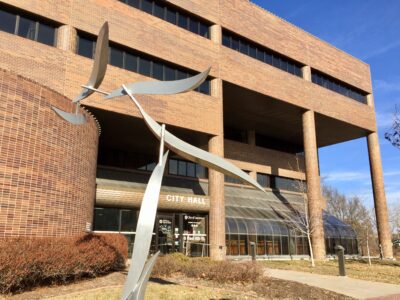Probe sought over tax rebate
DA is asked to investigate whether Deciphera deal violated open meetings law
Deciphera Pharmaceuticals
- Deciphera looks to fast-track first drug (10-31-07)
- Bioscience firms taking root (11-01-07)
- City: Deciphera tax break not handled well (10-27-07)
- City, county may be responsible to pay $1.5M of company’s grant even if it moves (10-27-07)
- Deciphera deal eluded public scrutiny (10-25-07)
- City upholds agreement reached with Deciphera (10-24-07)
Douglas County District Attorney Charles Branson is investigating whether the City Commission violated the state’s open meetings law as part of a controversial process authorizing a tax rebate for a local company.
Branson’s office has received three formal complaints alleging that city commissioners violated the Kansas Open Meetings Act when it conducted a closed-door executive session last month to discuss a contract that would give a first-of-its-kind tax rebate to Deciphera Pharmaceuticals.
Branson said he had delivered a letter to City Hall on Thursday afternoon directing city leaders to provide a written response to the allegations. The city has until Wednesday to provide the information to Branson.
“This is the first step in the investigation,” Branson said. “After we receive and review the city’s response, we’ll be in a better position to determine whether to investigate further, whether a formal complaint should be filed in District Court, or whether the file should be closed with no additional action.”
The alleged violations could threaten the approximately $3 million incentives package that the city, county and local economic development organizations have offered to Deciphera to keep the promising startup company in town.
Branson said if a violation is proven to have occurred, the agreement that was approved by city commissioners last week could be declared null and void. Branson said state law allows for that remedy, but his office would have to decide whether to seek it. The law also allows for a $500 fine.
City Manager David Corliss previously has said he believes the discussions about the Deciphera agreement did not violate the state’s open meetings act. Corliss confirmed that a conversation was conducted on the deal as part of an Oct. 2 executive session. He said the conversations could legally take place behind closed doors under the provision that allows governments to have executive sessions to discuss matters “deemed privileged in the attorney-client relationship.”
On Thursday, Corliss referred all questions to Jerry Cooley, the city’s attorney. Cooley said he was still reviewing the allegations and gathering information.
Branson declined to reveal who had filed the complaints alleging that the city had acted improperly. But leaders of Grassroots Action – one of the city’s larger political activism groups – announced Thursday that they had filed a complaint.
“It appears policy was discussed behind closed doors, and it never really was discussed publicly,” said Gwen Klingenberg, a member of the group and a signatory of the official complaint. “That concerns us.”
The complaints stem from an agreement that commissioners approved at their Oct. 23 meeting. The only action that commissioners took in open meeting was to authorize the vice mayor to sign a package of legal documents related to the deal. The package of documents included more than 20 pages of legal language. One of the pages contained a single paragraph authorizing the unique tax rebate provision.
The idea of a tax rebate – a device never before used in Lawrence – was not mentioned during the public meeting.
The tax rebate is similar to a tax abatement. It guarantees that for a 10-year period, Deciphera will not pay above a certain amount in property taxes for an East Hills Business Park building that it will use as its headquarters and laboratory.
The tax rebate did not go through any of the normal review processes that are required for a tax abatement. Tax abatements are required to be reviewed by the city’s Public Incentives Review Committee. A cost-benefit analysis also is required to be performed for all tax abatement requests.
Several city commissioners have defended the process. They said the city needed to move quickly to keep Deciphera from moving to a Johnson County community that was offering an incentive package to the bioscience company.
City leaders have praised the company because, as a firm working to develop cancer-fighting drugs, it is expected to have strong growth potential. The company has predicted it will have 200 employees – mainly Ph.D-level scientists – at its Lawrence operations in the next several years.



